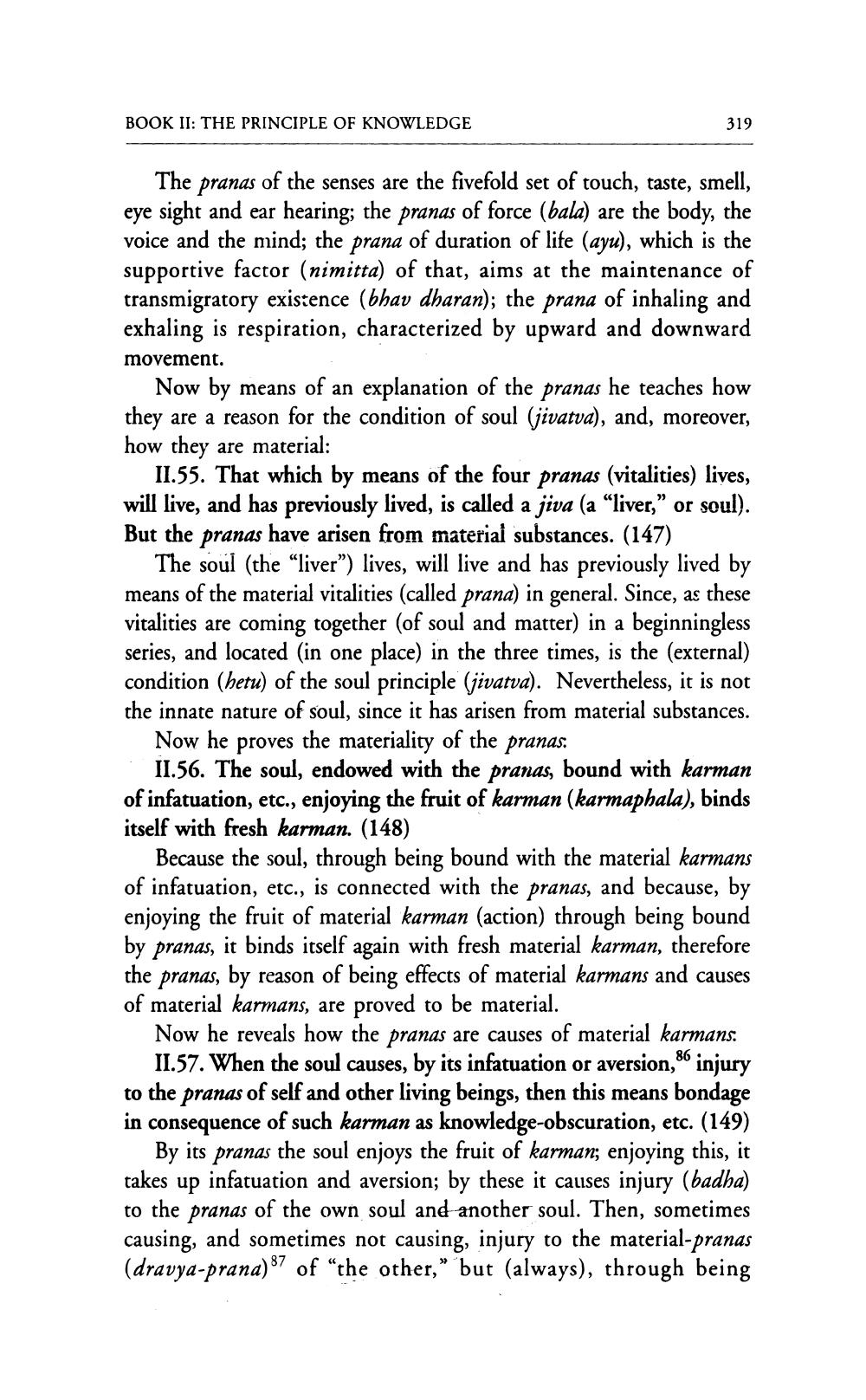________________
BOOK II: THE PRINCIPLE OF KNOWLEDGE
319
The pranas of the senses are the fivefold set of touch, taste, smell, eye sight and ear hearing; the pranas of force (bala) are the body, the voice and the mind; the prana of duration of life (ayu), which is the supportive factor (nimitta) of that, aims at the maintenance of transmigratory existence (bhav dharan); the prana of inhaling and exhaling is respiration, characterized by upward and downward movement.
Now by means of an explanation of the pranas he teaches how they are a reason for the condition of soul (jivatva), and, moreover, how they are material:
11.55. That which by means of the four pranas (vitalities) lives, will live, and has previously lived, is called a jiva (a "liver," or soul). But the pranas have arisen from material substances. (147)
The soul (the “liver”) lives, will live and has previously lived by means of the material vitalities (called prana) in general. Since, as these vitalities are coming together (of soul and matter) in a beginningless series, and located in one place) in the three times, is the (external) condition (hetu) of the soul principle (jivatva). Nevertheless, it is not the innate nature of soul, since it has arisen from material substances.
Now he proves the materiality of the pranas.
II.56. The soul, endowed with the pranas, bound with karman of infatuation, etc., enjoying the fruit of karman (karmaphala), binds itself with fresh karman. (148)
Because the soul, through being bound with the material karmans of infatuation, etc., is connected with the pranas, and because, by enjoying the fruit of material karman (action) through being bound by pranas, it binds itself again with fresh material karman, therefore the pranas, by reason of being effects of material karmans and causes of material karmans, are proved to be material.
Now he reveals how the pranas are causes of material karmans.
II.57. When the soul causes, by its infatuation or aversion, 86 injury to the pranas of self and other living beings, then this means bondage in consequence of such karman as knowledge-obscuration, etc. (149)
By its pranas the soul enjoys the fruit of karman, enjoying this, it takes up infatuation and aversion; by these it causes injury (badha) to the pranas of the own soul and another soul. Then, sometimes causing, and sometimes not causing, injury to the material-pranas (dravya-prana) 87 of “the other," but (always), through being




